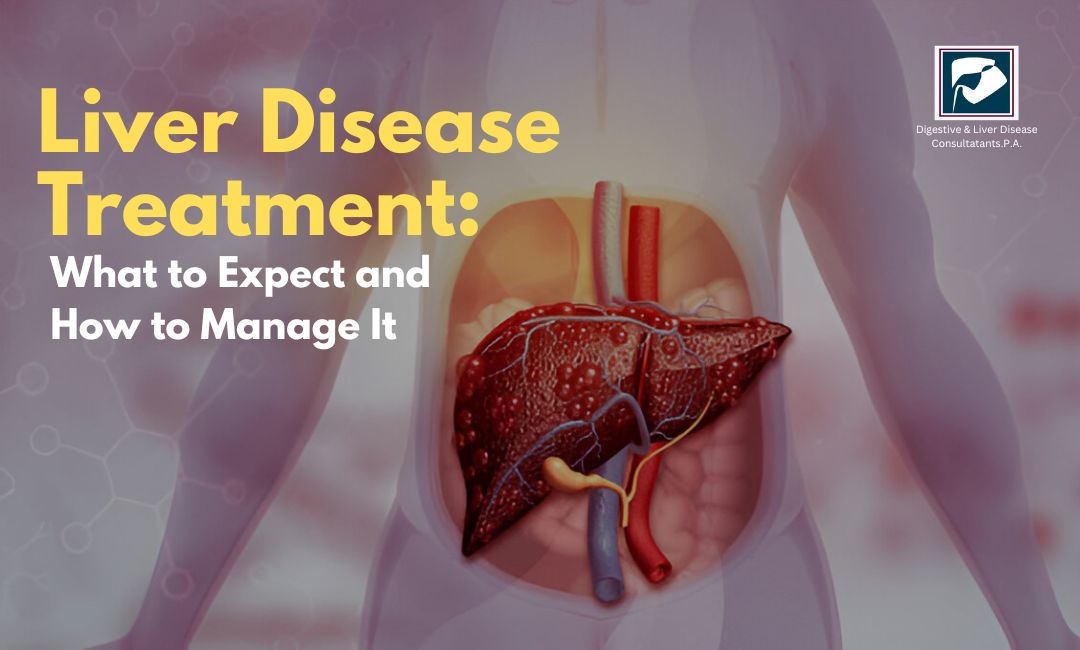Liver disease can be overwhelming, but knowing what to expect during treatment can help reduce some of the anxiety and confusion. Whether you're dealing with a mild condition or something more serious, it’s important to understand the process, the treatments available, and how they can help you on your journey to better liver health.
At Digestive & Liver Disease Consultants, P.A. (DLDC), we believe that informed patients make the best decisions for their health. In this blog, we’ll walk you through what you can expect during liver disease treatment and offer some tips for navigating this process.
The First Step: Diagnosis
The treatment journey begins with a thorough diagnosis. Your doctor will need to understand the type of liver disease you’re dealing with, its severity, and any underlying factors. This typically involves a combination of tests, including:
Blood tests: These check for markers of liver function and damage.
Imaging tests: Procedures like ultrasounds or CT scans give your doctor a clearer picture of your liver's health.
Biopsy: In some cases, a liver biopsy may be needed to confirm the extent of damage and determine the most effective treatment plan.
Once a diagnosis is made, your doctor will explain the type of liver disease you have, whether it's chronic, such as cirrhosis or fatty liver disease, or acute, such as hepatitis. This will guide the treatment approach and help you understand what lies ahead.
Treatment Plans for Liver Disease
Treatment for liver disease varies depending on the cause and severity. Here are some common treatment options you may encounter:
1. Lifestyle Changes
In many cases, lifestyle changes are the first line of defense against liver disease. These changes can help slow the progression of the disease, manage symptoms, and improve overall liver health.
Diet: Eating a balanced, nutritious diet is essential for supporting liver function. Your doctor may recommend avoiding alcohol, reducing your intake of high-fat foods, and focusing on a diet rich in fruits, vegetables, whole grains, and lean proteins.
Exercise: Regular physical activity can help manage weight and reduce the burden on the liver, especially if you have non-alcoholic fatty liver disease (NAFLD).
Weight management: Losing excess weight can significantly improve liver function, particularly in conditions like fatty liver disease.
These lifestyle changes, though simple, can have a big impact on your overall health and your liver’s ability to heal.
2. Medications
For some types of liver disease, medications may be necessary to manage symptoms or slow the progression of the condition. Depending on the type of liver disease, your doctor may prescribe:
Antiviral drugs: For conditions like hepatitis B or C, antiviral medications help control the virus and prevent further liver damage.
Immunosuppressants: In cases of autoimmune hepatitis, medications that suppress the immune system can reduce inflammation and protect the liver.
Diuretics: If liver disease leads to fluid buildup in the body, diuretics may help reduce swelling and ease discomfort.
Your doctor will explain the purpose of any prescribed medication and monitor its effectiveness through regular check-ups and tests. It’s important to take your medications as directed and communicate any side effects you experience.
3. Surgical Procedures
In more severe cases of liver disease, surgical intervention may be required. These procedures are typically considered when the liver is severely damaged and cannot function properly. Some examples include:
Liver transplant: In cases of end-stage liver disease, a liver transplant may be the best option. A liver transplant involves replacing your diseased liver with a healthy one from a donor.
Liver resection: In cases of liver cancer or tumors, surgery to remove a portion of the liver may be necessary. This can help restore liver function and improve quality of life.
TIPS procedure: For people with cirrhosis and complications like variceal bleeding, the transjugular intrahepatic portosystemic shunt (TIPS) procedure may be recommended to alleviate pressure on the liver and help control symptoms.
Surgical procedures are typically recommended only when other treatment options are no longer effective. The decision to pursue surgery will involve careful consideration of the risks, benefits, and your overall health.
4. Monitoring and Ongoing Care
Regardless of the treatment path you take, regular monitoring is crucial for managing liver disease. Your doctor will likely schedule routine check-ups and tests to assess the progress of your condition, adjust your treatment plan, and ensure that you’re on the right track.
This might include regular blood tests, imaging tests, and follow-up appointments to check how well your liver is responding to treatment. These appointments also provide an opportunity for you to discuss any concerns, ask questions, and get advice on managing your condition.
Coping with Treatment
Undergoing treatment for liver disease can be physically and emotionally challenging. Here are a few tips to help you cope:
Stay informed: Ask your doctor questions and learn as much as you can about your condition. Understanding your treatment options can give you a sense of control over your situation.
Seek support: It can be helpful to talk to family members, friends, or a support group to share your feelings and receive encouragement during difficult times.
Take care of your mental health: Coping with a chronic illness can be stressful. Consider seeking support from a counselor or therapist to help manage the emotional challenges of your treatment journey.
Conclusion
Liver disease treatment may feel like a long and sometimes overwhelming journey, but with the right guidance, it’s possible to manage and improve your liver health. By working closely with your healthcare team, making necessary lifestyle changes, and staying committed to your treatment plan, you can take control of your health and improve your quality of life.
If you suffer from liver disease, schedule a consultation with our best gastroenterologists today. Together, we can create a plan that’s right for you and take the first steps toward better liver health.






